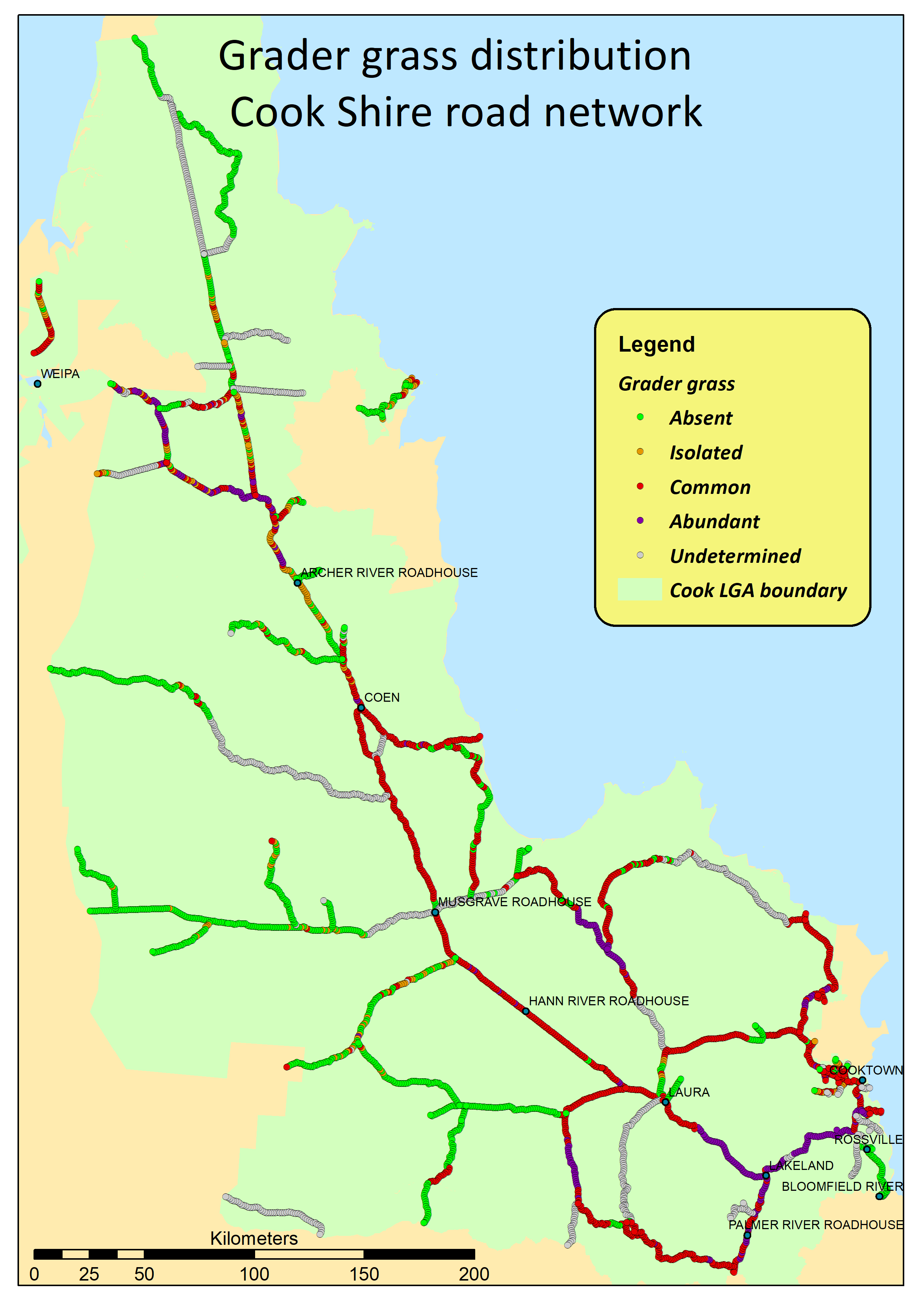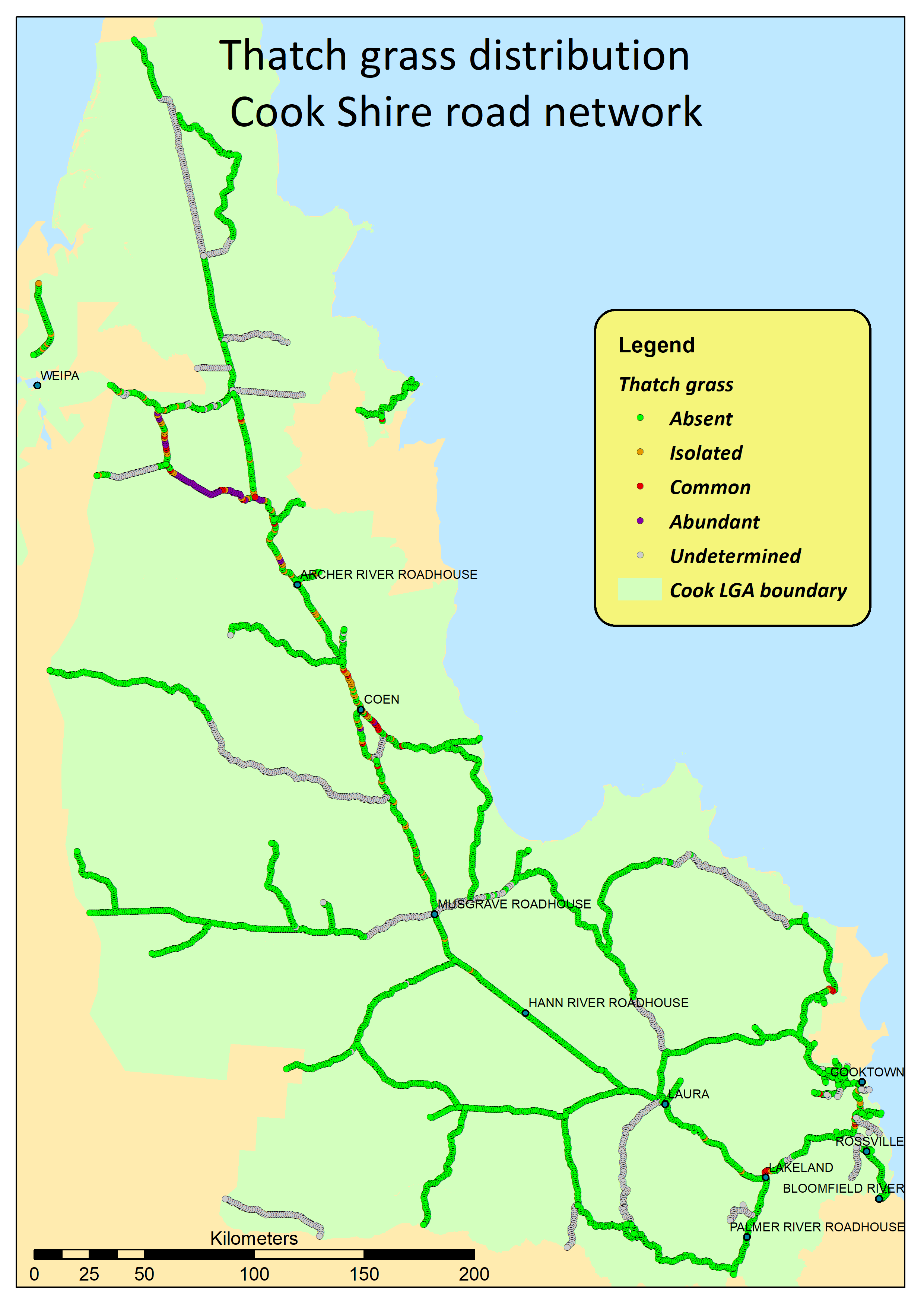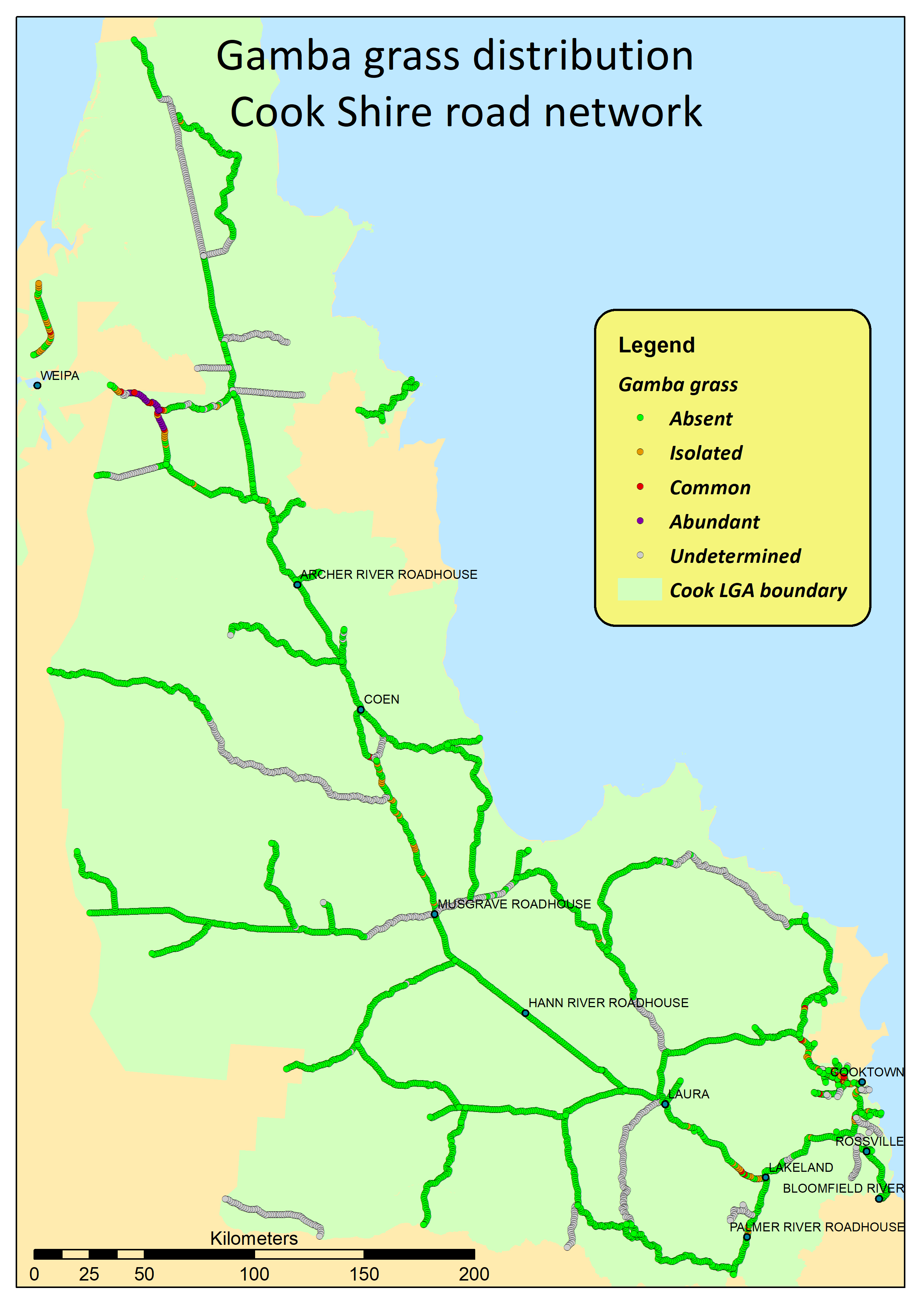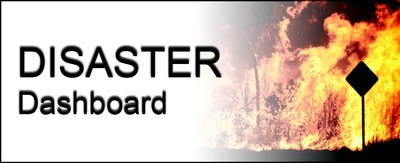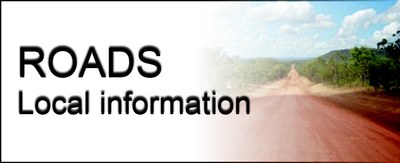Updates
Current control activities
High bio-mass (HBG) survey
In 2020 Cook Shire Council Biosecurity staff completed an invasive plant survey that defined the distribution and coverage of three high bio-mass grass species across the road network within the Cook local government area. Coverage has been described for each kilometre of road reserve according to four values: absent (species not present), isolated (species covers < 900 m2), common (species covers 900 m2 to 4900 m2), and abundant (species covers >4900 m2). Survey results and related maps will be used to identify where Council resources will be best applied to reduce the spread of these species. You can view the distribution maps for each species below:
|
|
Thatch Grass
|
|
|---|
Check your bait | White Spot Disease
Imported, raw prawns sold at supermarkets may carry diseases such as White Spot, which, if introduced into our marine environment, could have devastating consequences on our prawn population. Prawns bought from a bait supplier or service station are safe to use, so please ensure you use these or catch your own. Click here to find out how to identify White Spot. and to report a suspected case contact Biosecurity Queensland online or by phoning 13 25 23.
African Swine Fever
African swine fever is an infectious viral disease of domestic and feral pigs. People cannot be infected but it can result in a very high mortality rate in infected animals. Feeding meat, meat products, and swill containing meat products to pigs can spread the disease. Find out how to identify and control this disease, here.
Rats tail grass
Rats tail grass (Sporobolus pyramidalis) control work was undertaken by Biosecurity Services along Shiptons Flat road to Mt Poverty using the chemical Flupropanate. Native to Africa, this perennial grass grows along roadsides, creek lines and woodlands. With producing up to 85,000 seeds per square meter in a year, this weed is unpalatable to stock and is a major problem in overgrazed or disturbed areas. It is a significant weed in northern Australia. For more information, see the Giant rat’s tail grass - Fact sheet and Rats Tail Grass fact sheet - DAF or contact Biosecurity services on 4082 0500 or by email.
Tramp ant sentinel surveys
The Far North is currently impacted by two legislated pest ants’ species, broadly termed invasive tramp ants; electric ant (Wasmannia auropunctata) and yellow crazy ant (Anoplolepis gracilipes). Biosecurity Services conduct quad-annual sentinel surveys of transfer stations in the local government area to detect the presence of tramp ants before they become established. Tramp ants can reduce species diversity, modify habitat structure and alter ecosystem processes, forming ‘supercolonies’ with multiple queens that facilitate rapid and extensive colonisation. They are most readily translocated by human activity, hitching rides in anything from garden materials and building waste to pot plants and green waste. For more information, see the Yellow Crazy Ant Fact Sheet or contact Biosecurity Services on 4082 0500 or by email.
Rubber vine
Rubber vine (Cryptostegia grandiflora) control work was undertaken by Biosecurity Services on the Peninsula Developmental Road between Cooktown and Lakeland, Lakeland and Laura, and Lakeland and the Mareeba Shire boundary. More than 4000 rubber vine plants were treated with a highly effective herbicide solution. Rubber vine is a woody-perennial vine that is native to south-west Madagascar. It is a significant weed in northern Australia. For more information, see the Rubber Vine Fact Sheet or contact Biosecurity Services on 4082 0500 or by email.
Gamba grass
Gamba grass (Andropogon gayanus) control work was undertaken by Biosecurity Services on local roads throughout Cooktown and Musgrave, and on the Peninsula Developmental Road between Musgrave and Weipa. Native to Africa's tropical and subtropical savannas, gamba grass is a perennial tussock grass and useful cattle feed. However, mismanaged gamba grass can replace native plants and increase fire risk. For more information, see the Gamba Grass Fact Sheet or contact Cook Shire Council Biosecurity Services on 4082 0500 or by email.



